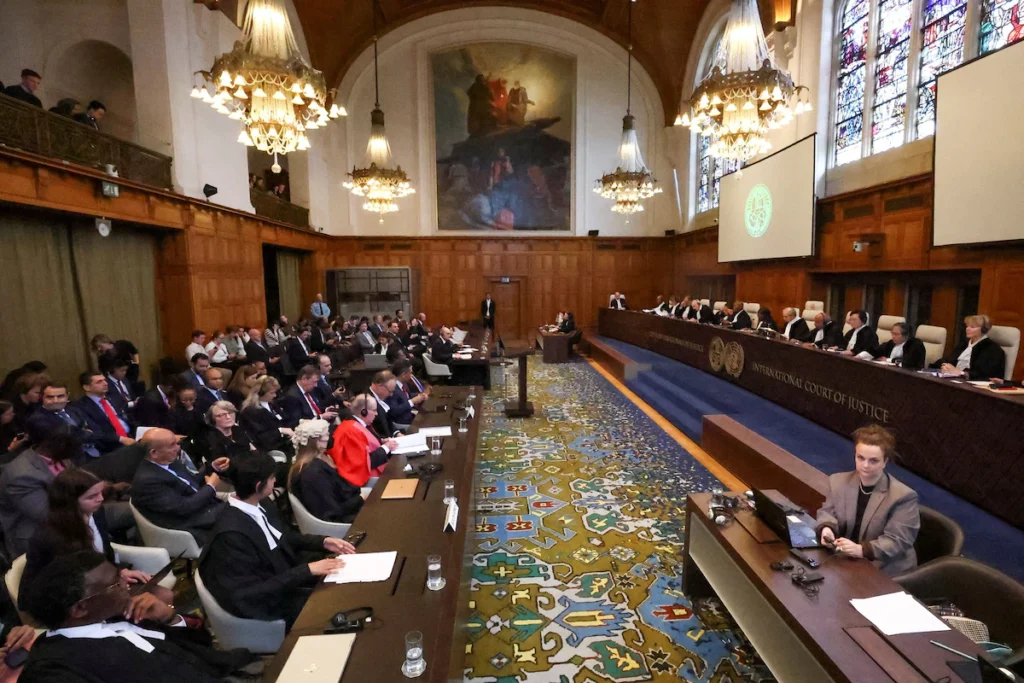
At the International Court of Justice, Israel on Friday described the case against its offensive in Gaza as “an inversion of reality,” following South Africa’s passionate plea for the court to order Israel to cease all military operations in the Palestinian enclave.
Gilad Noam, the Israeli deputy attorney general for international law, argued that South Africa’s accusations presented “a picture that is completely divorced from the facts and circumstances.” On Thursday, South Africa contended that Israel’s assault on Rafah and the closure of key crossings aimed to destroy “the essential foundations of Palestinian life.”
South Africa brought the case against Israel late last year, accusing it of violating the Genocide Convention through its ongoing war in Gaza, which escalated after a brutal cross-border attack by the Hamas militant group on October 7. During Thursday’s hearing, South Africa’s legal team requested the ICJ to issue urgent “provisional measures” to curb the violence in Gaza, as a full-scale Israeli incursion into Rafah appeared imminent.
Israeli officials have denied the genocide allegations. On Friday, the Israeli delegation defended their military operations in Rafah, describing the city as a “focal point” of Hamas activities, with an “intricate underground tunnel” network potentially used to smuggle out hostages held by militants.
Noam asserted that Israel was grappling with “the massive complexity that such a situation presents” and defended the military actions in Rafah as “limited and localized.” The hearing was briefly interrupted by shouts of “liars” from the audience, just before Israeli officials concluded their arguments.
Aid organizations and Western officials have cautioned that an Israeli invasion of Rafah could have catastrophic consequences for Palestinian civilians in the city, many of whom had sought shelter there earlier in the conflict, following Israeli evacuation orders.
In January, the ICJ ordered Israel to prevent genocidal acts in Gaza and to preserve any evidence related to the alleged crimes. The court also instructed Israel to take “immediate and effective measures” to provide basic services and humanitarian assistance to Palestinians, many of whom are now suffering from hunger and disease in overcrowded tent camps.
However, the court, the main judicial body of the United Nations, did not mandate a cease-fire. Since its ruling, thousands more Palestinians have been killed, and aid groups have warned that famine has gripped the northern part of Gaza.
Approximately 600,000 people have fled Rafah in recent weeks, following the Israeli seizure of the Rafah border crossing with Egypt. Israel has since targeted key areas of the city, leading to the closure of health facilities and disrupting aid distribution across southern Gaza.
Leave a Reply